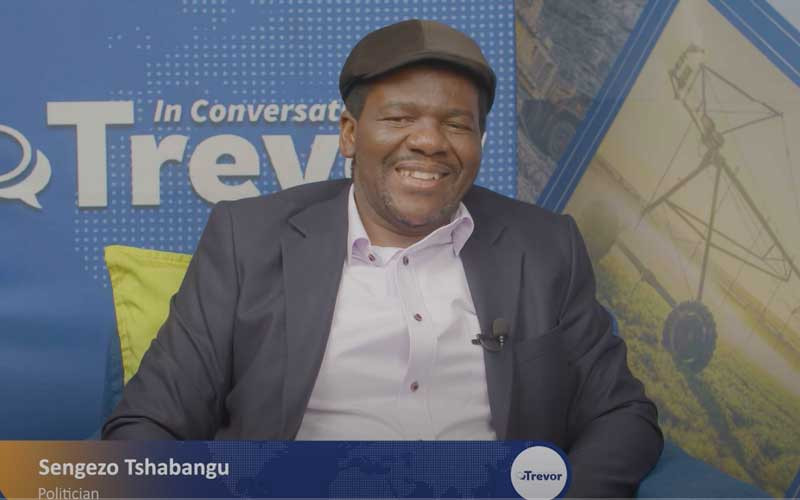
OPERATING or living in a market battered by rolling blackouts is no easy walk in the park. In Zimbabwe, where industries and consumers currently bear the brunt of 16 hours of daily blackouts, the predicament has been compounded by steep surges in energy costs as suppliers take advantage of electricity shortages. Energy markets are volatile, but out of the crisis, opportunities have also emerged for start-ups and established firms to supply alternative energy sources to ameliorate the pain. These were among key issues that came out of Alpha Media Holdings’ inaugural Waste to Energy Conference recently held in Kariba, where our senior business reporter, Melody Chikono (MC) had a discussion with Kudakwashe Manyanga (KM, pictured), an executive at Onyx Earth Biogas to get a glimpse of how biogas can help the economy. Manyanga was one of the speakers at the conference. Here is how their discussion went on:
MC: Tell us about biogas uptake in Zimbabwe.
KM: Biogas uptake is growing, driven by increasing energy costs and environmental concerns. However, more education and awareness programmes are needed to accelerate adoption.
MC: A challenge in embracing biogas has been installation costs. What could be the solutions to this?
KM: To make biogas affordable, our company offers flexible payment plans, collaborate with financial institutions for funding options, provides training on biogas maintenance and repair, among others solutions.
MC: During your presentations at the conference, you touched on carbon credits trading. Can you take us through this?
KM: Zimbabwe has potential for carbon credits trading through biogas projects. Through our partner, Africa Institute for Carbon Trading and Sustainability, we help clients develop and register projects under international carbon credit schemes, such as the verified carbon standard (VCS), gold standard and compliance market.
MC: You also said lack of knowledge was hampering participation in this market?
KM: To educate people on carbon credits, there is a need to conduct workshops and training sessions, provide online resources and guides and partner with local universities and organisations for research and capacity building.
MC: Is there potential for Zimbabwe in this market?
KM: Zimbabwe has significant potential due to its agricultural sector and waste management challenges.
Biogas projects can generate substantial carbon credits, attracting international investment as well as contributing to the nationally determined contributions.
MC: Can you take us through your work as Onyx Earth Biogas?
KM: Onyx Earth is a renewable energy company based in Harare, which specialises in biogas solutions and wastewater treatment. It offers comprehensive services to convert organic waste into clean energy, reducing greenhouse gas emissions and generating carbon credits.
We specialise in designing, installing, and maintaining biogas systems for housing developers, hospitals, schools, individual housing units, farmers and other organic waste producers.
Onyx Earth addresses a wide range of environmental challenges related to solid and liquid waste treatment and provides total solutions for managing these waste streams in a sustainable manner.
We are well positioned to meet the challenges of protecting the environment and enriching the lives of communities in a cleaner world, both now and in the future.
MC: What motivated you to get into this business?
KM: There is limited awareness and knowledge about biogas technology. Many people, especially farmers, are having difficulties disposing of their waste, while harvesting energy stored in waste produced on their farms.
Other factors include limited availability of technical expertise and limited research and development. This includes how to optimise biogas production and new applications for the biogas produced to realise more value.
The general populace has limited awareness of biogas benefits. They view waste as a menace, instead of tapping into the energy potential stored in waste. In the Zimbabwean context, there are inefficient waste management practices, which include dump sites and disposing of raw sewage just to mention a few.
Coming from this background, Onyx Earth Biogas has emerged as a market leader in providing robust biogas and renewable energy solutions to close this gap.
MC: What have been your major milestones?
KM: We have successfully installed over 500 biogas systems across Zimbabwe with sizes ranging from six cubic metres to 1 400-cubic-metre digester units. We have also partnered with local and international organisations to promote biogas adoption.
Our research and development team has also managed to develop a portable, affordable biogas system design that is quickly penetrating the urban market.
As part of our corporate social responsibility, we have also held seminars to train local communities on biogas benefits and maintenance.
MC: What traction have you gained yourself in this market?
KM: Onyx Earth Biogas is in the process of registering Zimbabwe’s first biogas carbon credit project under VCS.
The company has secured funding for biogas projects from international donors, established partnerships with local and international organisations and expanded to Malawi and Zambia.
MC: Where do you see the company in the next five years?
KM: In the next five years, Onyx Earth Biogas aims to expand operations across Southern Africa, develop new biogas technologies and increase carbon credit trading volumes.
MC: What challenges are you facing?
KM: Challenges include limited funding for biogas projects, regulatory frameworks still evolving, competition from established energy sources and lack of public awareness and education.






